Japan is one of the countries that has become a destination for foreign young people to pursue higher education and build a career. One of the most popular fields among foreign academics and professionals is engineering. A very high salary, a brilliant career in Japan and internationally, a very comfortable life guarantee during a career until retirement in old age are a series of achievements that are very likely to be achieved by those who have a career as an engineer in Japan.
Why Japan? Japan is a country known for its technological prowess and very high quality standards. The professionalism and responsibility of Japanese people in making Japanese manufactured goods is very different from other countries. Not only that, but their dedication and perseverance at work and in fulfilling their responsibilities is enviable. Therefore, having an engineering degree from one of the best universities in Japan can be one of the achievements in your portfolio that will be a plus point, certainly very attractive to employers.
Therefore, to help you map out the best and most popular universities in Japan that you should aim for, we present this article just for you! We have summarized everything you need to know about the best universities for engineering in Japan. So, let’s start with the 10 best and most popular universities for engineering in Japan!
Contents
Is It Worthwhile to Study Engineering in Japan?
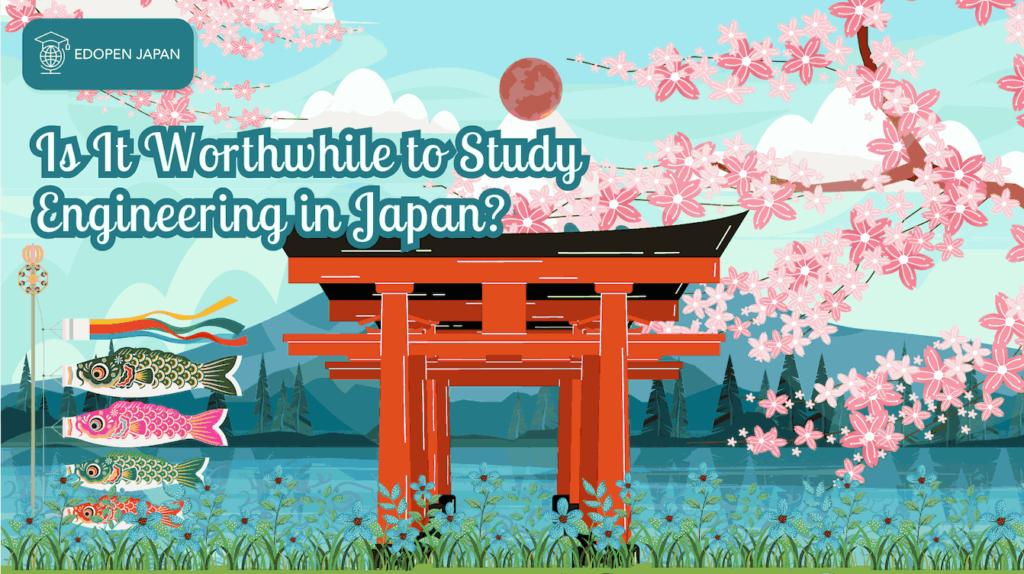
Of course! A big yes! You will get tons of benefits if you manage to get an engineering degree in Japan. It is these benefits that have become the goal of many foreigners, which is why they decide to pursue engineering degrees from bachelor’s to master’s to doctoral degrees at top Japanese universities.
Then, what are the advantages of being an engineer in Japan? The following list may open and broaden your horizons:
- You have the opportunity to receive a world-class education at Japanese technical universities, some of which are on par with the best technical universities in the world.
- Japan is a country that is constantly innovating in the field of technology. The opportunity to build a career as a technician in Japan is very high due to the very high industrial demand in Japan.
- Japan is currently experiencing a demographic crisis. Meanwhile, the demand for professionals in Japan continues to grow. Your chances of getting a job in one of the Japanese companies are very high.
- Compared to Western countries, tuition fees in Japan are very affordable. In addition, you can get many exemptions, scholarships, part-time opportunities on campus, and others that will certainly make it easier for you to study diligently at a Japanese university.
- Salaries and career opportunities in Japanese companies are very competitive. However, your professionalism and hard work will be well rewarded in a country where dedication is highly valued.
On the other hand, it would be unfair to discuss only the benefits, advantages, or convenience of studying and working as an engineer in Japan. Your ability to adapt to a very different language and culture will also be tested during your education in Japan.
Take the Japanese language, for example. Although top companies in Japan are very friendly to foreigners and English, having Japanese language skills will make it easier for you to do various activities outside of school and work, such as completing administrative tasks when you have to go to a neighborhood office, city, or doctor’s clinic.
Are the Engineering Courses Only in Japanese?
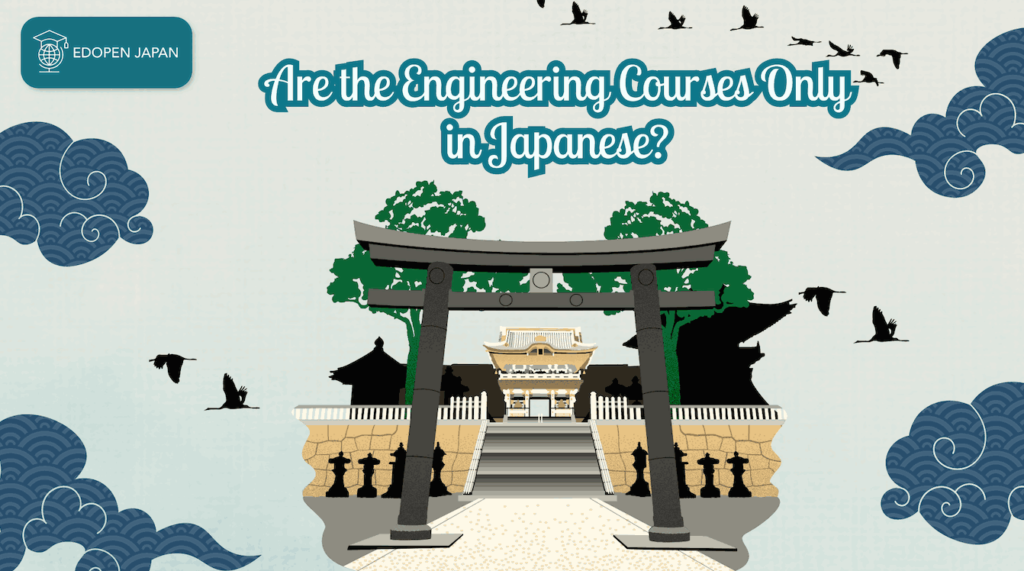
Each university has its own academic curriculum, but most of the best engineering universities in Japan actually offer some courses in English. However, as expected, most courses are also taught in Japanese.
Please note that, in order to participate in these courses, an international student must have the JLPT N2 or N1 certification. It depends on the university and at least 200 points on the Japanese section of the EJU test before being able to enroll in a Japanese university.
Then, you can apply for a special scholarship program or integrated master’s to doctoral program at one of the top universities in Japan. Usually, this special scholarship program offered by the Japanese government is also available for engineering fields. Especially for these programs, all full courses are usually taught in English. However, you need to prepare well because your competitors come from all over the world and are very competitive.
10 Best & Most Popular Universities for Engineering in Japan
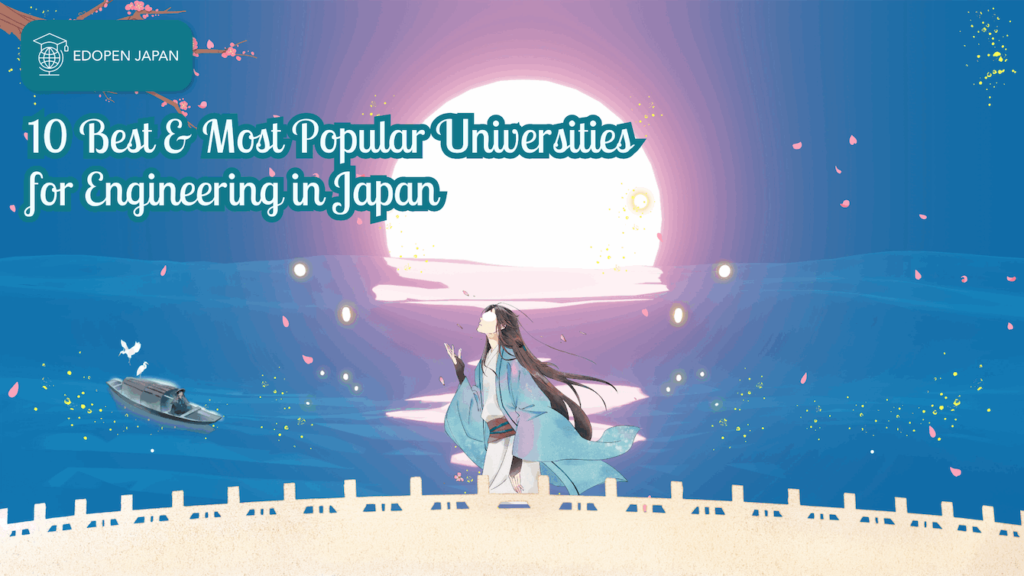
The list below shows the top universities recommended for studying engineering in Japan. The order is based on their global position in the “QS Top Universities Ranking” as the following:
1. University of Tokyo (No. 23)
The University of Tokyo, known locally as Todai, is a public university and the most prestigious university in Japan. It ranks first in the country and is also the oldest university in Japan. The Faculty of Engineering counts with more than 15 departments in fields such as: Civil Engineering, Aeronautics, Materials Engineering, Mathematical Engineering, Among others. It also has fully English-taught courses in chemistry and environmental sciences.
2. Kyoto University (No. 33)
Kyoto University is located in the western region of Kansai. Its location in Kyoto offers a completely different study atmosphere than Tokyo, as it is located in the old capital of Japan, with ancient history and culture. It has a Faculty of Science and a Faculty of Engineering, the latter divided into Global Engineering, Architecture, Engineering Science, Electrical and Electronic Engineering, Computer and Mathematical Science, and Industrial Chemistry.
Furthermore, it also counts with an undergraduate program in Civil Engineering imparted entirely in English. It is a great university for people who want to experience Japan’s traditional culture while enjoying all the benefits of living in a big city. It is also worth mentioning that the cost of living in Kyoto is comparatively cheaper than in Tokyo, making it a more budget-friendly option for studying abroad.
3. Tokyo Institute of Technology (No. 56)
Tokyo Institute of Technology (Tokyo Tech) is a multidisciplinary school that focuses on giving students freedom of choice in their study topics, aiming to provide a broader range of knowledge while maintaining focus in their area of specialization. It counts with schools in science, engineering, materials and chemical technology, computer science, etc.
Moreover, it counts with a bachelor course in English that is part of the SchoolSchool of Environment and Society, with the name, Global Scientists and Engineers Program (GSEP), which presents singular freedom in selecting their own study plan, while receiving direction from a teacher for their projects and study career.
4. Osaka Universit (No. 75)
Osaka University is located in one of the largest cities in Japan, in the western region of Japan. The city of Osaka offers a completely different living experience than Tokyo. And according to their website, they have the largest student body of any university in Japan. Osaka University counts with a School of Science, School of Engineering and School of Engineering Science; from Architecture to Computer Science, it counts with most if not all the degrees a possible student would be interested in.
Then, it should be noted that while Osaka University counts with a respectable number of classes in English, it doesn’t count with any specific course in English. So any student interested in enrolling in Osaka University for an undergraduate degree should be able to study in Japanese.
5. Tohoku University (No. 82)
Located in the northeastern city of Sendai. Tohoku University, although ranked 82nd in the world, is considered one of the top 3 universities in Japan. It is also accredited, the special recognition of being a “Designated University,” which gives it a more flexible platform for research and high-level studies in the country. It also counts with some bachelor level degrees in English, such as Advanced Molecular Chemistry, Applied Marine Biology Course, and International Mechanical and Aerospace Engineering Course.
It also counts with an extensive list of master’s and doctoral level courses taught in English. Tohoku University prides itself on research and innovation. For a person who wants to participate in research in new areas of engineering, Tohoku University could easily be considered one of the best in the country.
6. Nagoya University (No. 118)
Located in the city of the same name, Nagoya University is a public university focused on research and development. It counts 6 Nobel laureates among its faculty members. It is also one of the public universities in Japan that counts with a considerable number of courses imparted in English, such as fundamental and applied physics, chemistry, biological sciences and automotive engineering, among others.
Further, it also accepts enrollment in its courses while you are abroad, and most English courses start in October, so it is a good option for people who do not want to interrupt their studies for a bit while aligning with September in the most commonly used international school calendar.
7. Kyushu University (No. 137)
Located in Fukuoka, Kyushu University has a 1:8 ratio of international students and a 9:1 ratio of students to faculty, giving the university a reputation for providing education, guidance, and research tailored to each student. Kyushu University counts with various undergraduate schools such as Science and Innovation, Science, Medicine, Pharmaceutical Sciences, Engineering, among others.
And also, there are courses in Electrical and Electronic Engineering, Architecture, Applied Chemistry, Mechanical Engineering, and others, taught in English.
8. Hokkaido University (No. 145)
Located in the northern area of Hokkaido and specifically in the city of Sapporo, Hokkaido University has the largest campus of any university in Japan. It is because of the extensive facilities that it can provide a great area for study and research of agriculture, engineering, fisheries sciences, medicine, veterinary medicine, science, among others.
Moreover, it also offers studies in English, though an umbrella term called Integrated Science Program (ISP), which covers physics, chemistry and biology. A student enrolled in the ISP is expected to complete four years of a bachelor’s degree and then continue their studies for a specialization in a graduate level. This system also offers the possibility of having the student graduate in a shorter time through an advanced graduation system. And for graduate studies, it offers an extensive list of 250 courses taught in English.
9. Keio University (No. 201)
Keio University, known locally as Keidai or simply Keio, is a private, research-focused university located in the Tokyo area. It is also the oldest institute of western higher education in the entire country. It offers courses in physics, electronics, computer science, mechanical engineering, and chemical and biological engineering, among others.
Then, all of these courses are taught in Japanese, and while Keio is recognized for its studies in fields such as medicine and science, it doesn’t offer undergraduate courses in these fields taught in English. It does, however, offer graduate courses in the sciences that can be taken entirely in English.
10. Waseda University (No. 203)
As one of the top private universities, together with Keio, it is a private university located in the Tokyo region, with more than 50 English-based degree programs and more than 2400 courses also taught in English, with an academic staff compromised of 50% of international members, that is, foreign nationals or graduates of overseas universities; Waseda University is one of the universities with great multiculturalism and global experience.
In particular, Waseda University offers undergraduate degrees in English in mathematics, physics, astronomy, chemistry, biology, mechanical engineering, information engineering, civil engineering, applied chemistry, and applied physics, among others. And in Japanese, Waseda University has four engineering schools with a wide variety of courses and programs to choose from.
Summary
Some of the points that need to be noted at the end are as follows:
- Studying in Japan doesn’t have to be more expensive than studying in the US or Europe.
- It is not necessary to be fluent in Japanese to study engineering at a Japanese university.
- There are universities offering courses in English all over Japan, from Okinawa to Hokkaido.
- There are a large number of public universities that offer English courses.
- It is necessary to have a JLPT certification of N2 or above to enroll in a course taught only in Japanese.
- Some universities allow enrollment from overseas, and their start dates are more in line with overseas school systems.
If you are currently looking for relevant, up-to-date, and comprehensive information about studying in Japan, please read also our recommendations below:
Top 10 Universities with the Best Arts Program in Japan
10 Most Popular International Universities in Tokyo
Top 10 Medical Universities in Japan

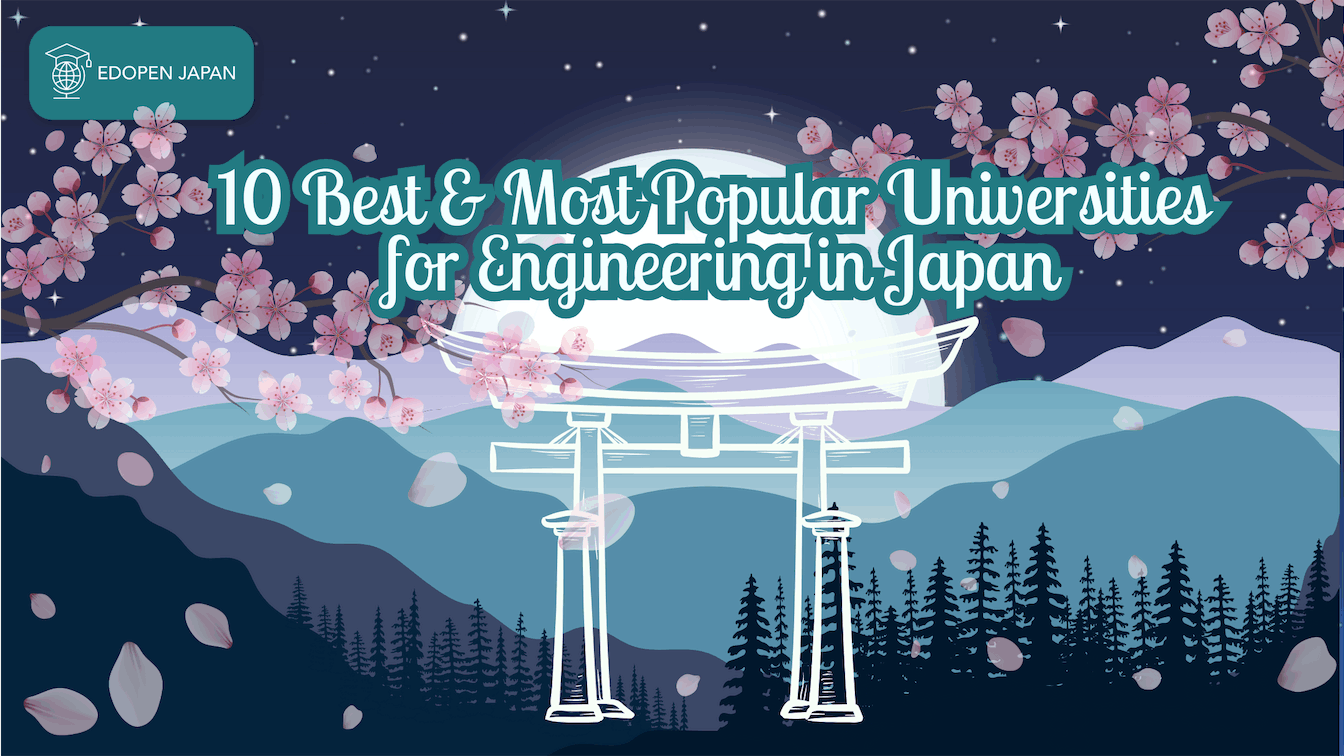







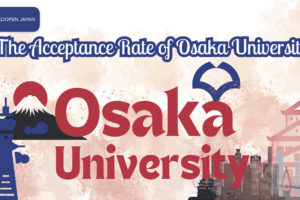




Leave a Reply